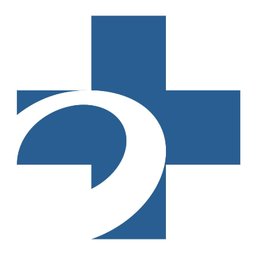Graduate Student (msc Phd, Phd)
Job Description
We are looking for a knowledgeable and enthusiastic Doctoral student in the Department of Microbiology and Immunology (option to register via Department of Clinical Translational Medicine) to join our collaborative research team at the OHRI.
Periprosthetic joint infection (PJI) is a devastating complication and leading cause of failure of total joint replacement (TJR) treatment strategy for arthritis patients, despite the overall success of the approach. With a current failure rate of nearly 36%, treatment failure can lead to limb amputations and even death. The formation of protective biofilms shields bacteria from the immune system as well as prevent systemic antibiotic therapies to reach minimum inhibitory concentrations. A collaborative team of scientists and clinicians at the OHRI are investigating the potential of therapeutic bacteriophages (phages), naturally occurring viruses, to destroy biofilm matrix, target and kill bacteria within and outside biofilm. Phage therapy is a promising adjunct to antibiotics and has been demonstrated as safe and effective in phase I and II clinical trials for several disease models including PJI.
Part of our translational research program focuses on studying the effectiveness of phage cocktail candidates, in combination with antibiotics, in combatting S. aureus infection in PJI and its impact on the host immune system. Researchers in our team span disciplines in clinical medicine and basic sciences, including orthopaedic surgery, microbiology, immunology, stem cell, bone biology, and engineering. We are looking for exceptional and highly motivated post-graduate MSc-PhD (transfer) or direct-to-PhD candidates to work on the immunological study arm of this research program.
Study cohort recruitment and synovial fluid, tissue and blood collection will establish testing potential for this work. A comprehensive study of host inflammatory markers, systemically and locally, will help to determine the impact of phage therapy on the host immune system and the infection. Large scale biomarker study, cellular immunology and tissue pathology assessment will underly the investigations. Understanding these correlations can guide optimal timing to apply phage therapy, as well as help predict which patients will be better responders to phage therapy.
Your specific role will be to characterize the defining features of PJI and the impact of phage therapy and antibiotics on these. To do this, you will acquire skills in human specimen processing and storage in a biobank and subsequent specimen study. You will apply multi-parameter biomarker assays, and immune cell phenotype and function assessment (largely focused on monocyte/macrophage and T cell biology) using cell culture and immunoassays such as fluorescence- or mass-cytometry methods, tissue immunohistochemistry as well as transcriptomics approaches. These studies will be under the direct supervision of the Crawley lab (OHRI) - a key collaborator in the lead lab for this larger research program (Abdelbary lab, OHRI). Advanced data analysis methods will be applied, as appropriate. Additional explorative research avenues will be further informed from ongoing parallel research in the lead lab (Abdelbary) that studies an established animal model of TJR and its responses to novel phage therapies.
Basic Requirements (Education/Experience):
B.Sc. in biology, biochemistry, health sciences, or related field. Experience in research lab as research assistant, summer internship, or Honors project MSc in immunology, biology, biochemistry or related field If enrolling in the MSc program, must have a strong willingness, and demonstrated potential to apply to transfer to the PhD program (following the institutional procedures required)
Preferred Qualifications:
Experience in cell and molecular biology techniques (PCR, cell culture, etc.) Experience with histology techniques Experience with cytometry (multicolour, fluorescence/mass) Experience with data analyses (e.g. knowledge of R and/or Python, FloJo, t-SNE plot analyses)
Contract Details:
This is a MSc-PhD or PhD contract
Minimum Annual Stipend for MSc is $23,000, and PhD is $25,000
Comments to Applicant:
Individuals who are interested in the position should submit curriculum vitae, a copy of official transcripts and statement of research interest to:
Contact Info:
Name: Dr. Angela M Crawley
Title: Senior Scientist
Ottawa Hospital Research Institute
Address: 501 Smyth Road, Ottawa, ON
Email: acrawley@ohri.ca
The Ottawa Hospital Research Institute is committed to building and sustaining a welcoming and supportive culture that promotes equity, diversity and inclusion for trainees, researchers, and staff. We are devoted to identifying and removing barriers that limit equitable access to opportunities within our organization. The Ottawa Hospital Research Institute strongly supports initiatives that encourage the participation of all groups, in particular the four groups defined in the Employment Equity Act (women, Indigenous peoples, persons with disabilities and members of visible minorities).
We thank all applicants for their interest. However, only those invited for an interview will be contacted. The Ottawa Hospital Research Institute is an equal-opportunity employer. Upon request, accommodations due to a disability are available throughout the selection process.
MNCJobz.com will not be responsible for any payment made to a third-party. All Terms of Use are applicable.
Job Detail
-
Job IdJD2441983
-
IndustryNot mentioned
-
Total Positions1
-
Job Type:Full Time
-
Salary:Not mentioned
-
Employment StatusPermanent
-
Job LocationOttawa, ON, CA, Canada
-
EducationNot mentioned




